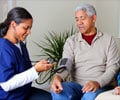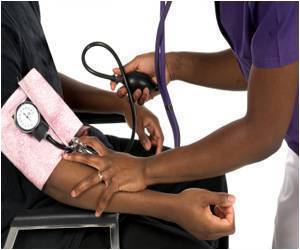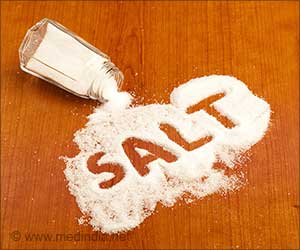
‘Adopting a healthy lifestyle pays for people with treatment-resistant blood pressure.’
Tweet it Now
Treatment-resistant hypertension affects about 5% of the general global population and may affect 20% to 30% of adults with high blood pressure.Resistant hypertension is also associated with end-organ damage and a 50% greater risk of adverse cardiovascular events, including stroke, heart attack, and death.
The American Heart Association advised that physical activity is the optimal first treatment choice for adults with mild to moderately elevated blood pressure and blood cholesterol who otherwise have low heart disease risk.
This new study Treating Resistant Hypertension Using Lifestyle Modification to Promote Health (TRIUMPH), is the first to evaluate the impact of lifestyle modifications in people with resistant hypertension.
This study is a four-month clinical trial that involved 140 adults with resistant hypertension (average age 63; 48% women; 59% Black adults; 31% with type 2 diabetes; and 21% with chronic kidney disease).
Advertisement
The other 50 participants received a single informational session from a health educator and written guidelines on exercise, weight loss, and nutritional goals to follow on their own.
Advertisement
The DASH eating plan is a diet plan that is rich in fruits, vegetables, low-fat dairy products, and limited salt, and aligns with the American Heart Association’s nutrition recommendations.
The success of the supervised program does not mean people with resistant hypertension can stop taking their medications but they can talk with their physicians about reducing the dosages or altering their medications based upon their blood pressure values.
The study was conducted at a single institution so the findings may not be generalizable to broader groups of people.
However, the intensive, structured, supervised part of the study occurred at several representative cardiac rehabilitation centers that represent educational and cultural diversity.
The study’s impact beyond the four months of monitoring is limited because there is no data about the maintenance of participants who made these lifestyle changes.
“Though we usually think about recommending lifestyle changes like losing weight and getting more physical activity before starting medications, this study provides important reinforcement that adding lifestyle changes in conjunction with medications – and when medications alone are not doing the job – is an effective strategy”, said Gibbs, an associate professor in the department of health and human development and clinical and translational sciences at the University of Pittsburgh.
The lifestyle treatment for hypertension urged patients to commit to lifestyle changes such as losing 5% to 10% of their body weight, greater adherence to the DASH-style diet, and increasing steps by at least 1,000 per day for health benefits.
Source-Medindia













